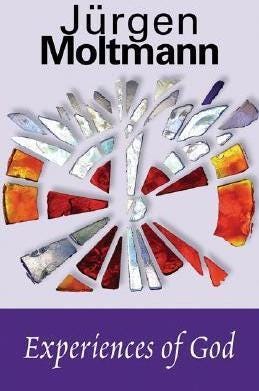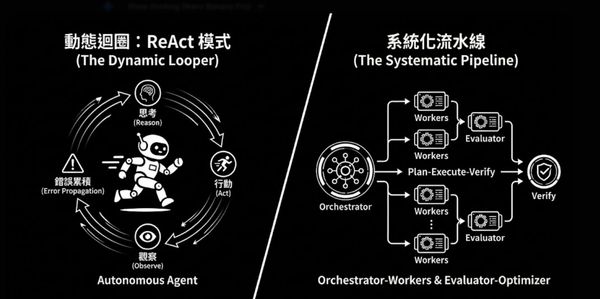Jürgen Moltmann on Christian Hope
Faith in the resurrection does not look past death to eternity. Nor does it come to melancholy terms with this vale of tears. It sees the raising of the tortured and crucified Son of Man as God’s great protest against death and against everyone who plays into death’s hands and threatens life.

Following passage is an extract from Jürgen Moltmann’s Experiences of God, on Hope. Beautifully written.

Christian faith is essentially faith in the resurrection. Faith in the resurrection means being born again to hope. At Taizé the life that springs from this faith was called “an endless feast”. ‘The risen Christ makes life a continual festival, a festival without end’, said Athanasius. ‘Is it possible to celebrate life in the midst of death?’ asked an Argentinian friend, in a letter written at Christmas 1978. ‘For those of us who live in Latin America the question isn’t an empty phrase. Here we do not only meet death in the context of subversive violence and repressive counter-measures. It surrounds us in a far crueler way in the form of growing unemployment, the decline in the real value of the wages of the poorest of the poor, and in the increase in child mortality.’ Is it possible honestly to celebrate the victory of Christ, or to see life as a festival, in a world like this? For so many people, victory seems to be swallowed up in death, and hell seems triumphant. Faith in the resurrection does not look past death to eternity. Nor does it come to melancholy terms with this vale of tears. It sees the raising of the tortured and crucified Son of Man as God’s great protest against death and against everyone who plays into death’s hands and threatens life. For faith senses that the event of Christ’s self-giving and his resurrection reflect God’s infinite passion for life, and for the salvation and liberty of his creation. Faith shares this passion. It shares in God’s protest, by rising up out of the apathy of misery (and even more out of the cynicism of prosperity) and by fighting against death in the midst of life. Death is the evil power already existing in life’s midst, not just at its end. Here is the economic death of the starving, there the political death of the oppressed. Here is the social death of the handicapped; there the noisy death through bombs; and here again the silent death of petrified souls. The raising of Christ is proved by our courage to rise against death. That is not just a play on words. We show our hope for the life that defeats death in our protest against the manifold forms of death in the midst of life. It is only in the passion for life and our giving of ourselves for its liberation that we entrust ourselves utterly to the God who raises the dead. Faith in the resurrection shows that it is alive when people protest against death. But the resurrection faith itself lives from something different. It lives from the exuberant rapture of God’s promised future. It shows its power in resistance. But it lives from measureless astonishment over the future, in the infinite joy of looking towards the new heaven and the new earth, in which righteousness will dwell, and towards eternal blessedness. ‘How much more’, says the apostle Paul, when he has ceased to talk about liberation from sin, law and death, and is talking about freedom for eternal life.
….
Christ is our hope because Christ is our future. That means that we are waiting and hoping for his second coming, praying ‘Come, Lord Jesus, come to the world, come to us!’ Just as the resurrection faith is hope’s foundation, so Christ’s second coming defines hope’s horizon. Without the expectation of Christ’s second coming there is no Christian hope; for without it hope is not putting its trust in a radical alternative to this world’s present condition.
….
Admittedly, our translation second coming for the expectation of Christs parousia and his kingdom is an unlucky one. It implies that Christ is not there at the moment, but that he will come again. But this does not correspond to the experience of his presence in the Spirit, For that reason I find the old translation used by Luther and Paul Gerhard better: they talked about ‘the future of Jesus Christ — and his future presupposes his present and his presence in the here and now. In history, and also among different present-day Christian groups, the expectation of Christ’s future has been linked with the most widely differing motives. Expectation of the coming Christ can certainly not be a dream of revenge on the part of people who have come off badly in this world (“the day of revenge will come!’). Nor can it be a dream of power on the part of the powerless (‘then we shall be the rulers and our enemies will be destroyed’). Nor, finally, can it well be a compensation for the disappointed (“things will be better in heaven). Expectation and prayer for Christ’s future is none of these things. It is the completion of that hope which was born of Christ’s resurrection. The risen Christ “must reign’ until he has put all his enemies under his feet. That is the basis of the apostle’s hope for the parousia (I Cor. 15.25). But if Christ was raised for our justification, and if he rules through the freedom for which he has set us free, then we can expect nothing less, and nothing other, of his future than the fulfilment of justification and a kingdom of freedom which will also include the whole ‘groaning creation’.
Of course it is true that expectation of Christ’s coming in glory includes the expectation of judgment: ‘from thence he shall come to judge the quick and the dead.’ The ending of evil is part of the consummation of salvation. God’s kingdom involves his judgment. There is no reason to leave this out, or to keep quiet about it, or to demythologize it, as just being part of the apocalyptic expectations of an earlier age. But there is even less reason for being overcome by anxiety or panic at the thought of the Last Judgment, or for visualizing it in terms of the horrifying visions of hell we see in medieval pictures. Even the coming judgment of the living and the dead is a subject for hope, for longing and the prayer, ‘Come soon, Lord Jesus!’ For who is the judge? It is the same Christ who gave himself up to death for sinners and who has borne our griefs and sicknesses. How should we not trust ourselves joyfully to his judgment? What will the crucified Jesus judge us by? The law, or his own gospel? Our own acts, or his sufferings for us? How should we not hasten joyfully to meet the universal judge when he is the one who was crucified for us? And finally — what will be the purpose of his judgment? The punishment of the wicked and the reward of the good? Or will his intention be to establish his righteousness everywhere and in everyone? Will he judge us in order to annihilate us, or to save us — to cast us down, or to raise us up? Does the Last Judgment know any other kind of divine righteousness and justice than what we experience here and now in the justification of sinners? The expectation of the Last Judgment ought not to become a projection of our suppressed guilt and anxiety. But neither can it be a projection of our notorious self-justification. It is only when it is based on the remembrance and present experience of Christ that judgment points in the direction of his future. His righteousness will triumph! He, the crucified Jesus, will judge! He will judge according to his gospel! The proclamation of the coming judgment is a joyful and liberating message, not a threatening and frightening one. That is why we sing Advent hymns. We can hope just as joyfully for Christ’s judgment as for his kingdom. Whatever may happen and whoever we may be — it is our Lord who comes, Thanks be to God!



